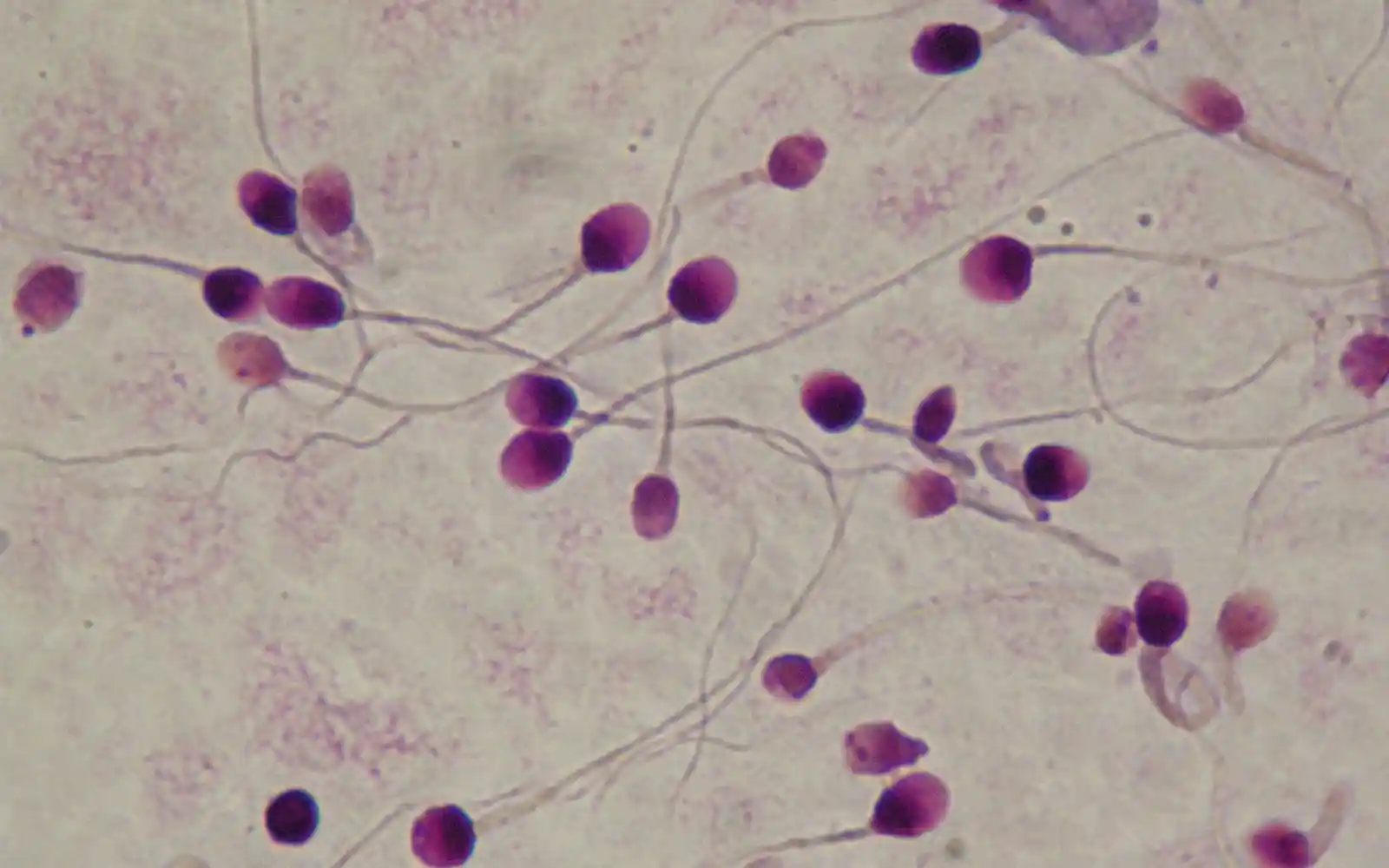Anti-sperm antibodies (ASAb) are a major cause of infertility, and they’re found in 9-36% of infertile couples. They’re caused by an immune response to sperm that can affect one or both partners. i Men tend to have ASASb more than women, and it’s a lot easier for men to get checked for anti-sperm antibodies with an extension to standard semen sample tests.
Men usually have a barrier between their blood and their testes, which separates sperm from their immune system. This is because sperm coming into contact with the immune system can trigger an immune response to these abnormal cells (they only contain half a normal cell’s DNA).
Once the acquired immune system has made specific anti-sperm antibodies, they accumulate in the mucous membranes of the urogenital tracts. The ASAb can physically attach themselves to sperm, which makes it extremely difficult for them to reach or fertilise an egg:
- Over 50% of men with low sperm motility carry ASAb ii
- About 66% of men with no live sperm carry ASAb iii
- Up to 70% of men who’ve had a vasectomy or a vasectomy reversal have ASAb iv
For men who know their testes (or the surrounding area) have had trauma, an ASAb test is a definite consideration, especially when the couple is struggling to get pregnant.
Women and ASAb
Women can develop antibodies to sperm in a number of ways, and they’ll be found in blood and cervical mucus, but they’re not specific to one man’s sperm:
- Women can develop anti-sperm antibodies from male partners who have them
- The chances of women having ASAb rise with the number of male sexual partners v
- About 7% of women with infertility, implantation failures and recurrent miscarriage have ASAb vi
- Natural conception is much harder for women with ASAb as many sperm are inactivated in the cervical mucus
- Women with ASAb are more likely to have antiphospholipid antibodies
Tests
This is either with the woman’s blood or the man’s semen (or both). For men, the test involves the addition of a substance to the sample that only binds to ASAb-affected sperm, and this gives the percentage of sperm with anti-sperm antibodies. The higher the ASAb level, the lower the chance of enough sperm reaching an egg to fertilise it.
Western medicine treatment
There is a range of options that range from suppressing the immune system with corticosteroids or cyclosporine or assisted reproductive techniques, including IUI, IVF or ICSI.
Medicinal herbal treatments
There are several herbal combinations that are reportedly effective for ASAb, with success rates of around 86% (38 patients), vii, which are only available from qualified practitioners.
ii “Immunologically conditioned fertility disorders in men – Experience of the Immunobiological Department of the Institute for Maternal and Child Care”, Madar j. et al, Ceska Gynekologie Dec:69. Supp. 1:15-20.2004
iii “Immunologically conditioned fertility disorders in men – Experience of the Immunobiological Department of the Institute for Maternal and Child Care”, Madar j, et al, Ceska Gynekologie Dec:69. Supp. 1:15-20.2004
iv “Relationship between anti-sperm antibodies and testicular histologic changes in humans after vasectomy”, Jarow JP et al, Urology. 43(4):521-4, 1994
v“Reproductive failure and antisperm-antibody production among prostitutes”, Bahraminejad R et al, Acta Obstetrica et Gynaecologica Scandinavica. 70(6): 483-5. 1991
vi “Evaluation of antisperm antibodies in infertile couples with immunobead test: Prevalence and prognostic value”, Busacca M et al, ACTA Europaea Fertilitatis. 20(“):77-82 1989
vii Dr Trevor Wing lecture notes from his clinical audit at The Women’s Natural Health Clinic, London. 2011




